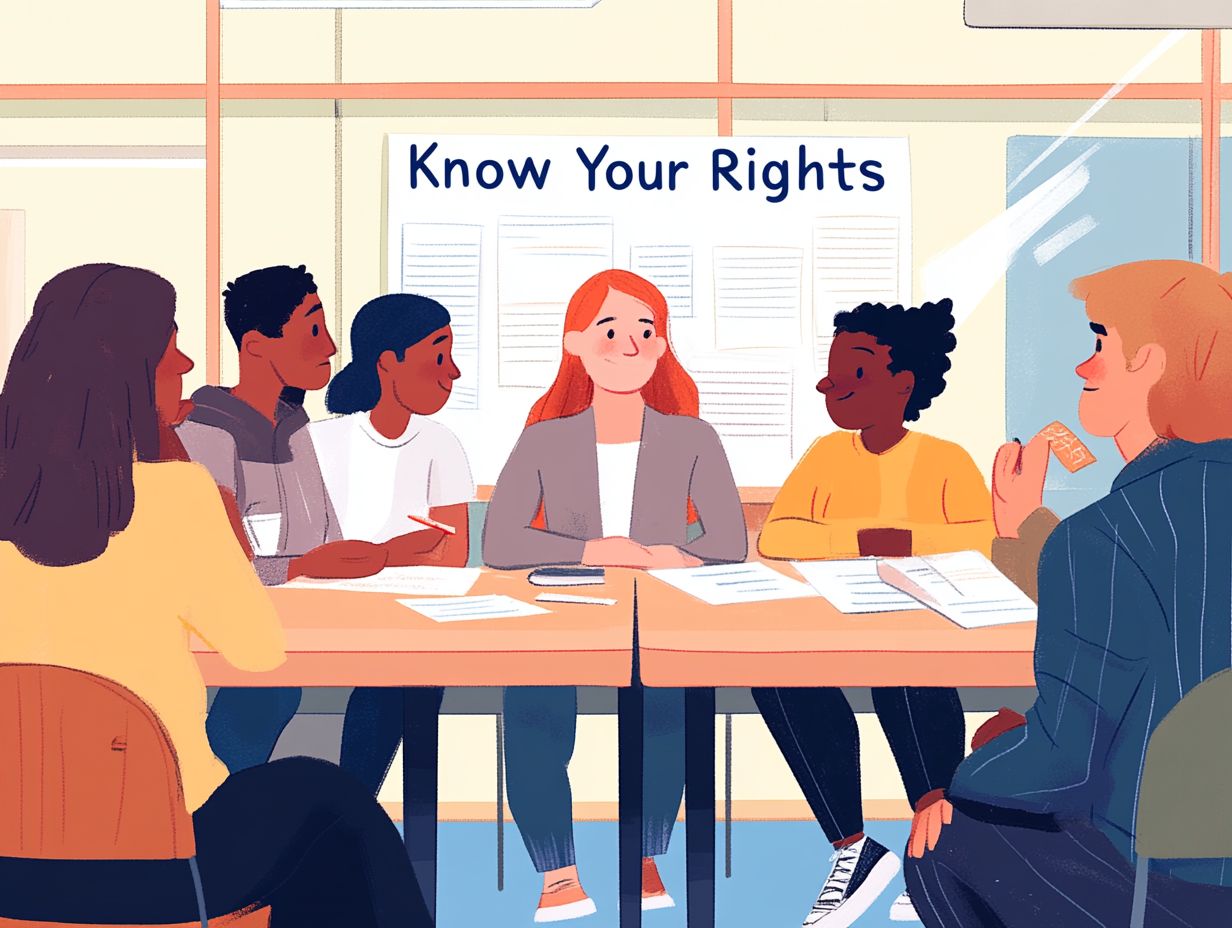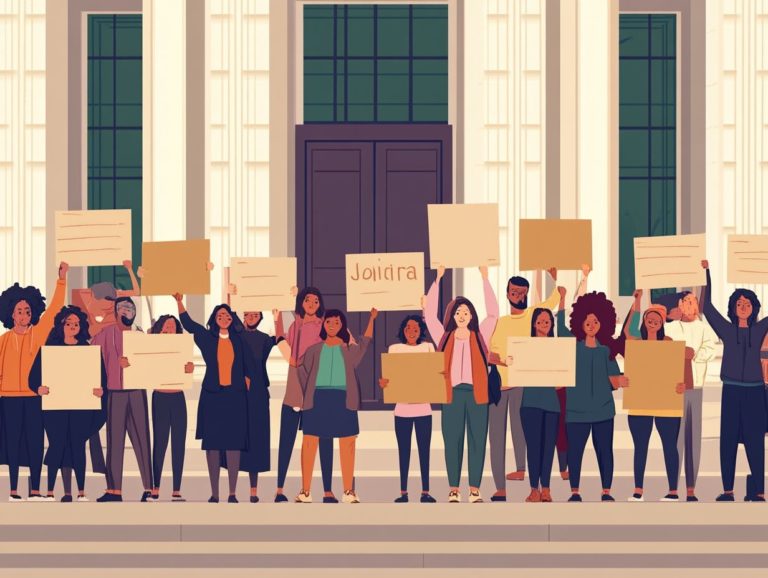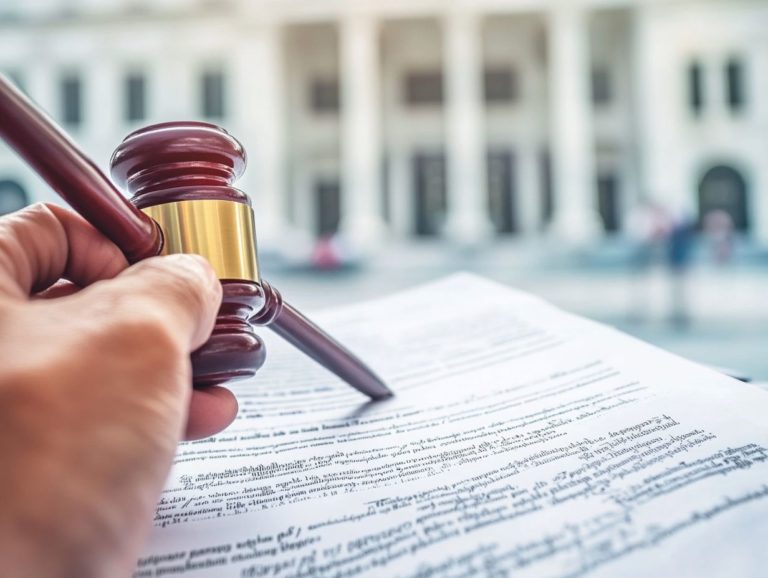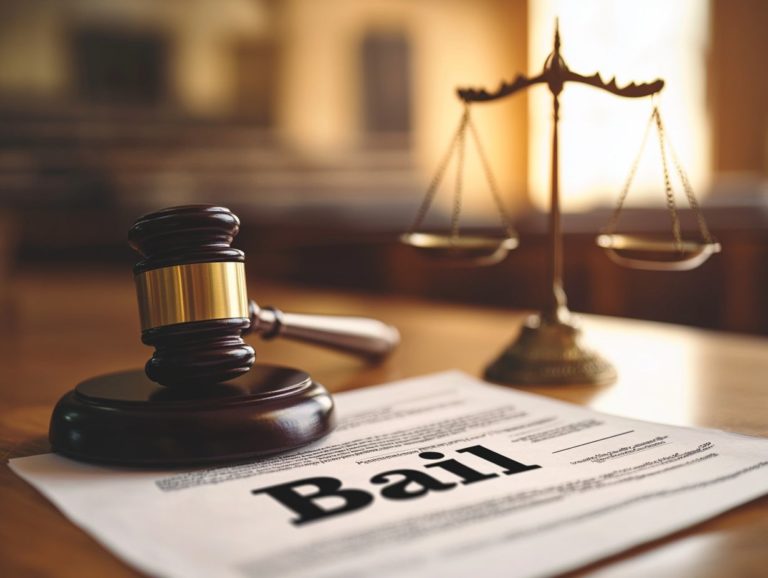Knowledge of Your Rights: A Basic Necessity
Knowing your rights is your power! It protects you and helps you stand up for yourself. Understanding your rights is essential for successfully navigating the complexities of modern life. Rights are fundamental entitlements that protect you and promote fairness, playing a crucial role in civil society.
This article delves into the various types of rights civil, political, economic, and social. We will shed light on their significance in empowering and safeguarding individuals like you. You’ll uncover how to educate yourself about your rights and discover practical steps to assert them effectively.
Join us as we unpack these vital concepts, equipping you with the knowledge you truly deserve.
Contents
- Key Takeaways:
- Understanding Your Rights
- Types of Rights
- The Importance of Knowing Your Rights
- How to Educate Yourself on Your Rights
- Exercising Your Rights
- Frequently Asked Questions
- What are rights and why is knowledge of them a basic necessity?
- What are some examples of basic rights?
- How can knowledge of your rights benefit you?
- What are some common barriers to accessing knowledge of your rights?
- Where can I go to learn more about my rights?
- What should I do if I feel like my rights have been violated?
Key Takeaways:
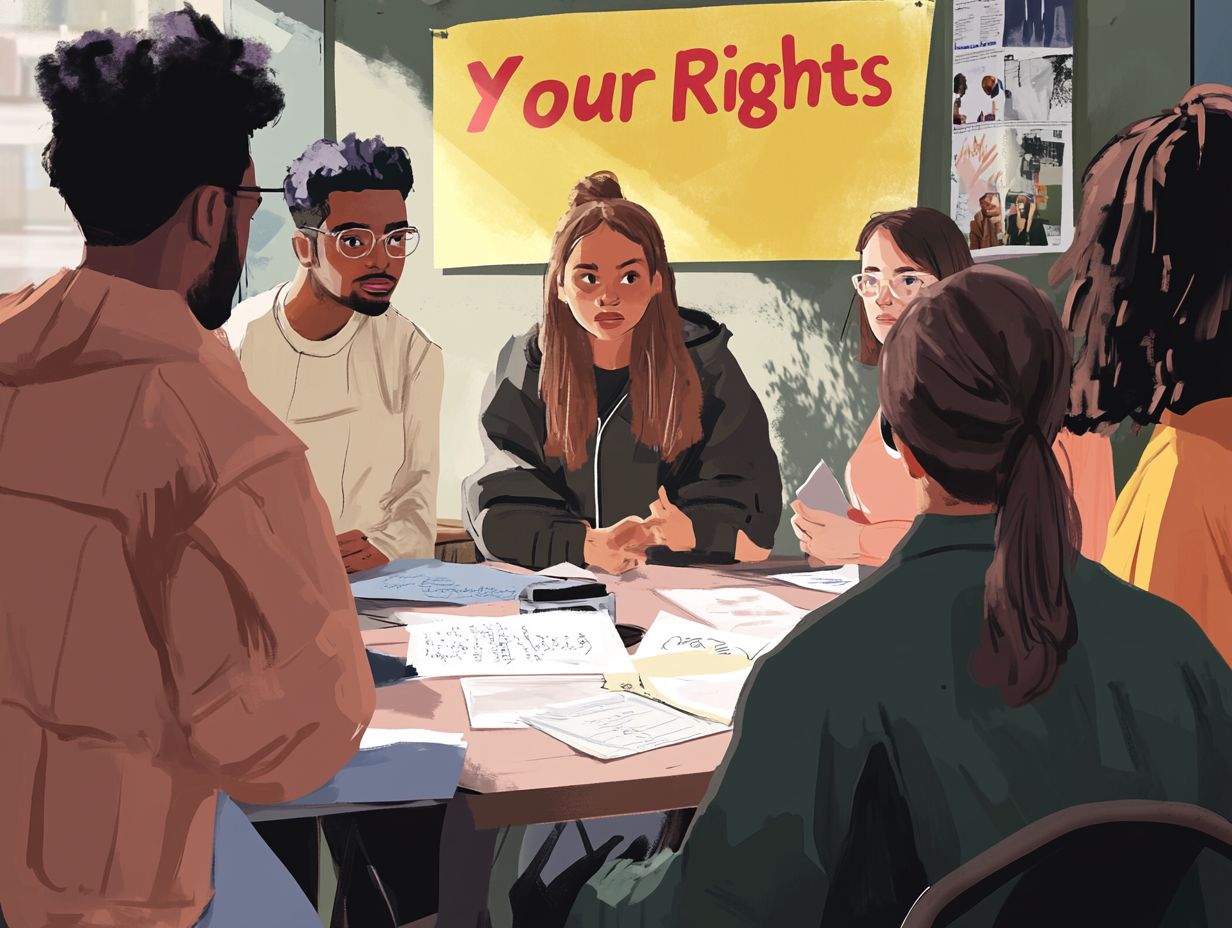
Knowing your rights is your first step towards empowerment. Understanding civil, political, economic, and social rights is crucial for standing up against injustice. Educating yourself on your rights is a basic necessity to exercise and advocate for them.
Understanding Your Rights
Understanding your rights is essential for upholding human dignity. It enables you to exercise your freedoms without facing discrimination.
Rights span various dimensions civil, political, economic, and social each outlined in crucial documents like the U.S. Constitution and the Universal Declaration of Human Rights.
Whether you re tackling issues related to racial discrimination, disability rights, or voting rights, having a clear grasp of your legal protections is vital. It fosters accountability and justice in society.
What are Rights and Why are They Important?
Rights represent essential freedoms and protections that you, as an individual, should enjoy. They encompass civil, political, economic, and social dimensions that are critical to fostering a just society.
These rights help ensure fairness in society, ensuring that every person is treated equally, irrespective of their background, status, or beliefs.
By safeguarding social rights and implementing laws that combat discrimination, societies can cultivate an environment where you have the opportunity to thrive.
Fundamental freedoms enable you to engage actively in your community while nurturing a collective responsibility toward fairness and equity. Embracing these principles contributes to dismantling systemic barriers.
This paves the way for a more inclusive world where each individual can access their full potential without the shadow of prejudice looming overhead.
Types of Rights
Rights can be categorized into several distinct classes:
- Civil rights safeguard individuals from discrimination.
- Political rights enable you to participate in governance.
- Economic rights provide support for equitable access to resources.
- Social rights ensure that your basic human needs and educational opportunities are met.
Civil, Political, Economic, and Social Rights
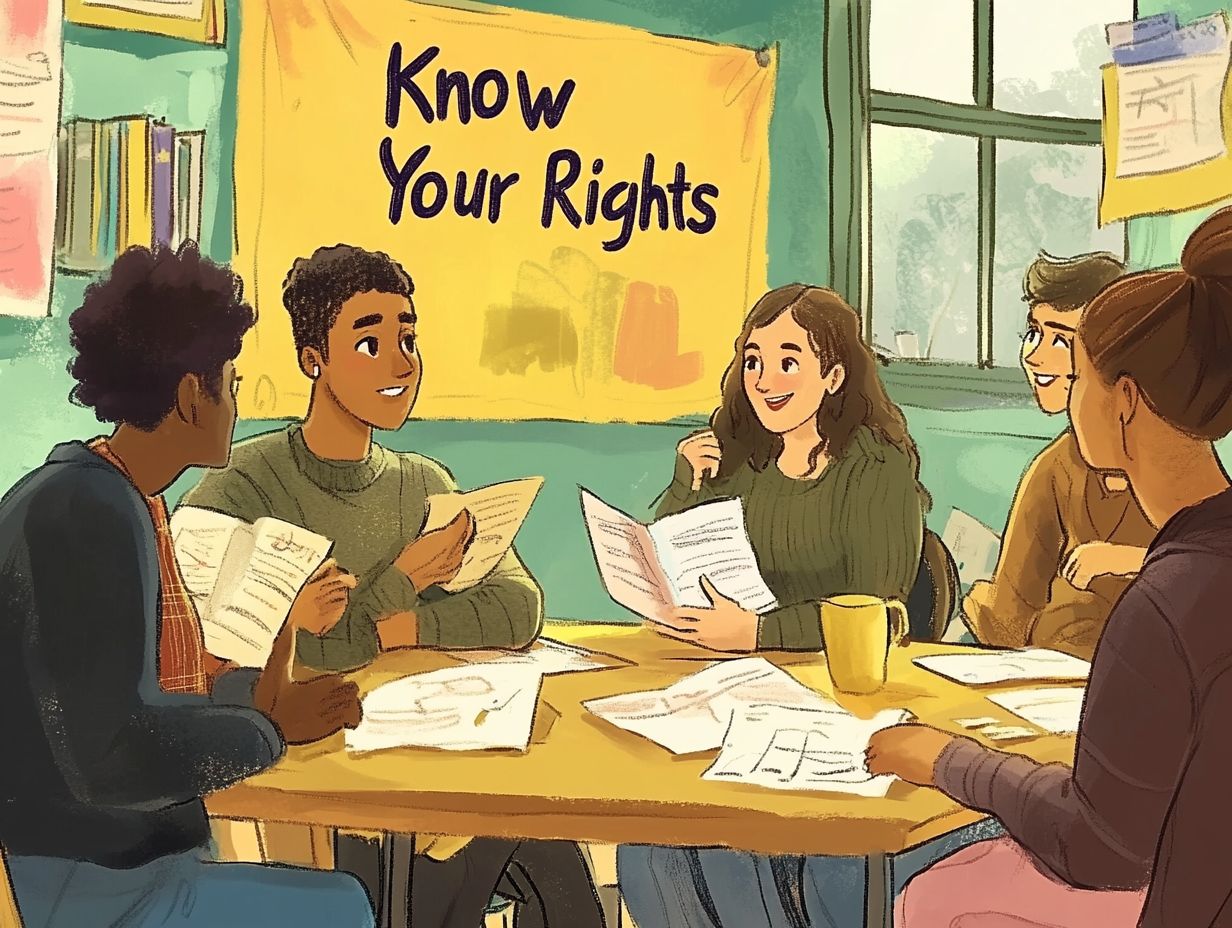
Civil rights laws protect you from discrimination and ensure your right to vote. Economic rights provide access to the resources necessary for a decent quality of life.
These legal frameworks are significant, especially when considering the experiences of marginalized communities, such as the LGBTQ population, who often face discrimination in various aspects of life, from employment to housing.
Landmark cases like Obergefell v. Hodges underscore the connection between civil rights and LGBTQ rights by affirmatively recognizing same-sex marriage as a constitutional right.
Social rights address essential issues like access to health care and social security benefits, which are vital for fostering an equitable society. The fight for these rights is often intertwined with broader human rights concerns, as seen in movements advocating for gender equality and the protection of minority groups.
This emphasizes the necessity for comprehensive protections that uphold dignity and fairness for everyone.
The Importance of Knowing Your Rights
Understanding your rights is essential for your empowerment and protection against potential violations.
This knowledge enables you to hold law enforcement and government entities accountable for maintaining legal standards and safeguarding your protections.
Don’t wait! Understanding your rights today can protect your future.
Empowerment and Protection
Empowerment through understanding your rights helps you take action against discrimination and ensures your active participation in the pursuit of justice and equality.
When you grasp your entitlements, you become more inclined to challenge societal norms that perpetuate injustice. This ignites conversations that have the potential to reshape public perception.
Community organizations play an important role in this process, providing platforms for collective action where voices come together to demand fair treatment.
Legal norms create clear frameworks for seeking recourse, making it essential for these organizations to educate you on the protections available.
As awareness increases, so does your confidence to confront rights violations, contributing to a more just society where everyone feels enabled to advocate for themselves and others.
How to Educate Yourself on Your Rights
Understanding your rights is crucial for advocating for your own well-being. You can achieve this through various resources, such as community programs, workshops, and informative materials offered by human rights organizations.
Sources of Information and Resources
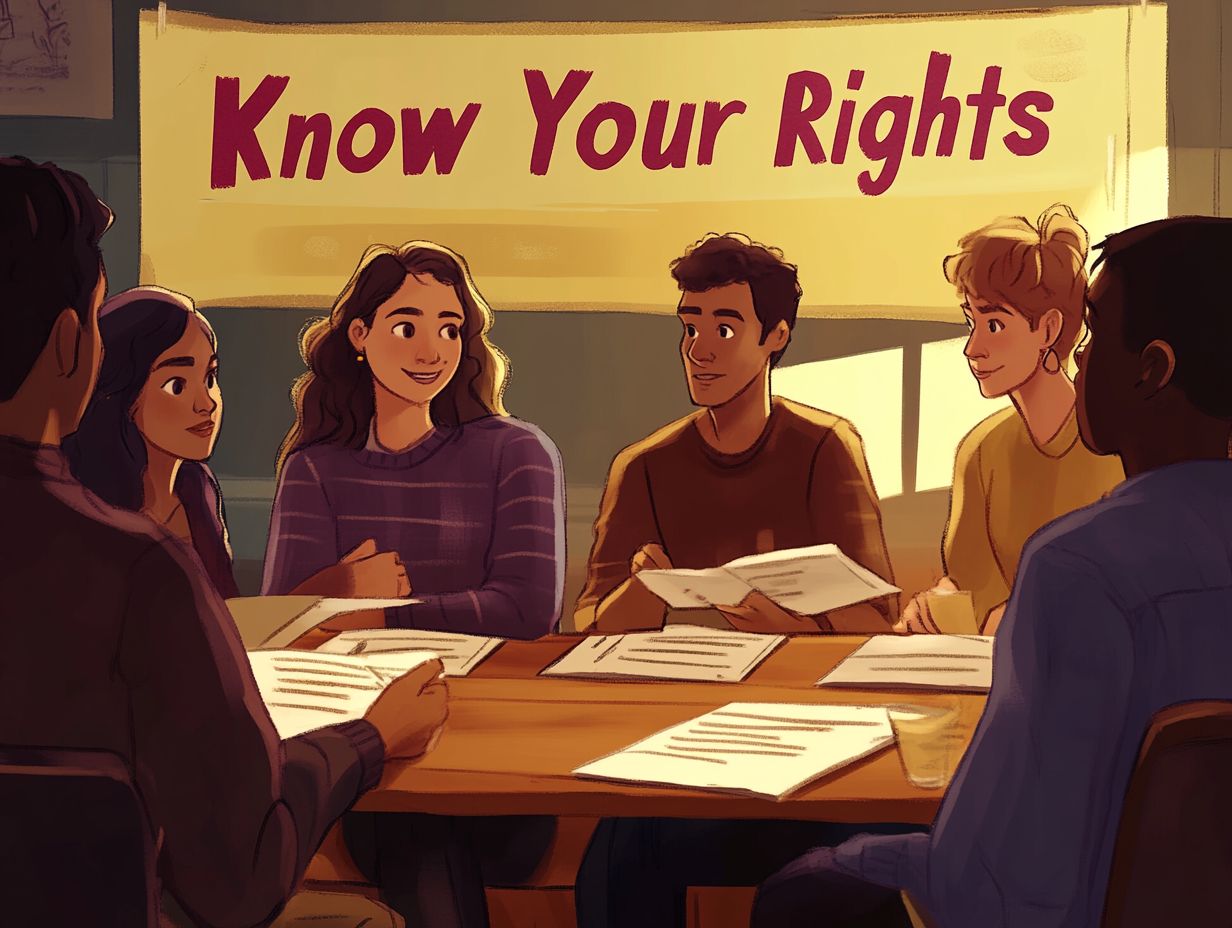
Various sources of information and resources, including human rights organizations and legal aid, provide essential educational materials that enable you to understand your rights, particularly concerning matters like DACA (Deferred Action for Childhood Arrivals, a program that protects eligible immigrants) and immigration status.
These organizations have helpful websites with guides and workshops tailored for vulnerable populations. For instance, groups such as the American Civil Liberties Union (ACLU) and the National Immigration Law Center (NILC) regularly offer up-to-date information regarding DACA and other immigration-related rights.
Local programs, including community centers and nonprofit legal assistance organizations, also play a significant role by providing in-person consultations and seminars designed to demystify complex legal frameworks.
Use these resources to understand your rights clearly and navigate the often confusing landscape of immigration law with greater confidence.
Exercising Your Rights
Exercising your rights requires a deep understanding of the steps to take in different scenarios. Make sure authorities are held accountable and seek legal support whenever the situation calls for it.
Steps to Take and Resources Available
To effectively exercise your rights, follow specific action steps, tap into available community resources, and seek legal support when faced with rights violations.
Your journey begins with a thorough understanding of the rights at stake, which you can explore through reliable online resources or enriching community workshops.
Document any incidents that may infringe upon your rights gather evidence such as photos, videos, or witness statements.
Once you ve collected this information, reaching out to local legal aid societies can provide invaluable, tailored guidance for your situation.
Connecting with civil rights organizations allows you to amplify your voice, fostering collective efforts that draw attention to broader issues. Engaging with community support groups cultivates solidarity and enables everyone involved to stand together in asserting their rights, magnifying the impact of your actions.
Frequently Asked Questions
-
What are rights and why is knowledge of them a basic necessity?
Rights are principles or rules inherent to all human beings, regardless of nationality, gender, race, or religion. These rights protect individuals against any form of discrimination, oppression, or injustice. Knowledge of your rights is a basic necessity because it empowers you to advocate for yourself and stand up against any violation of your rights.
-
What are some examples of basic rights?
Some examples of basic rights include the right to life, liberty, and security of person; the right to education; the right to freedom of speech and expression; the right to a fair trial; and the right to equal treatment and non-discrimination.
Take the first step today! Empower yourself and engage with the resources available to you.
How can knowledge of your rights benefit you?
Knowing your rights benefits you in many ways. It helps you make informed decisions and protects you from exploitation.
Understanding your rights empowers you to demand fair treatment and equal opportunities.
What are some common barriers to accessing knowledge of your rights?
Common barriers include language difficulties and a lack of education or resources. Cultural norms may also discourage people from seeking information about their rights.
Where can I go to learn more about my rights?
You can find many resources to learn about your rights. Start by researching online or visiting your local government agency.
Consider attending workshops or seeking advice from legal professionals.
What should I do if I feel like my rights have been violated?
If you believe your rights have been violated, it s crucial to speak up. Reach out to a human rights organization or a lawyer for support.
Document any evidence of the violation and take steps to protect your well-being.

